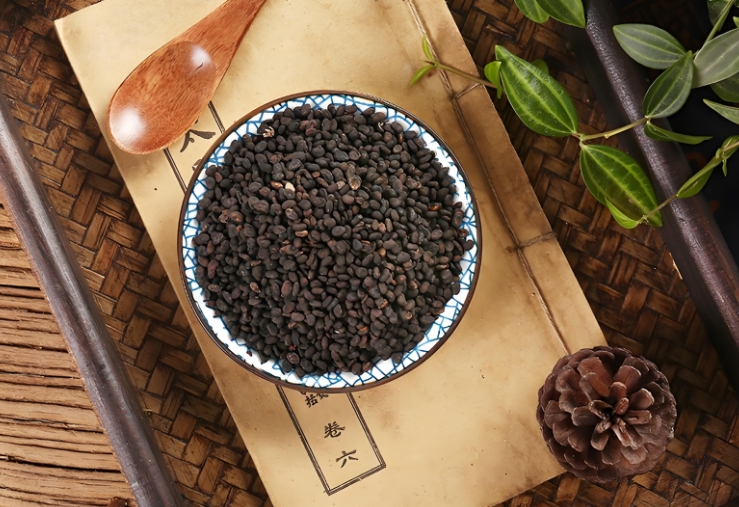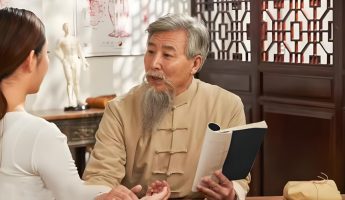1、 White Hedyotis diffusa
White Hedyotis diffusa, slightly bitter, sweet, and cold, returns to the stomach, large intestine, and small intestine meridians, and has the effects of clearing heat and detoxifying, promoting diuresis and eliminating blood stasis. Modern pharmacological research has shown that Hedyotis diffusa has effects such as cytotoxicity, induction of cancer cell apoptosis, regulation of immunity, anti-tumor multidrug resistance, anti-tumor angiogenesis, and delay of cancer cell proliferation cycle.
As a broad-spectrum anti-cancer traditional Chinese medicine, Hedyotis diffusa is widely used. The so-called broad-spectrum refers to the fact that Hedyotis diffusa has certain therapeutic effects on various types of cancer, especially for lung cancer and various digestive tract tumors. When used in combination with nourishing yin medicines such as Nansha ginseng, Beisha ginseng, Asparagus japonicus, Ophiopogon japonicus, Ligustrum lucidum, and Schisandra chinensis to treat lung cancer, it can effectively nourish lung yin and eliminate lung heat; If the heat sign of the lungs is obvious, it can be combined with the use of Xianhecao, Banzhilian, Solanum nigrum, Sophora flavescens, etc. to enhance the heat clearing power; Suitable for patients with lung cancer syndrome characterized by yin deficiency and internal heat (weight loss, lean body shape, cough but no phlegm or only a small amount of sticky phlegm, dry mouth, little or no tongue coating, low-grade fever, chest pain, shortness of breath, irritability, difficulty falling asleep, red tongue, etc.).
2、 Fructus Psorale
Psoraleae, with its pungent, bitter, and warm properties, belongs to the kidney, spleen, and lung meridians. It has the effects of tonifying the kidneys, strengthening yang, regulating qi, relieving asthma, consolidating essence, reducing urine, warming the spleen, and stopping diarrhea. Modern pharmacological research has shown that Fructus Psorale has effects such as cytotoxicity, induction of cancer cell apoptosis, regulation of immunity, anti-tumor metastasis, and resistance to chemotherapy drugs.
Psoralea corylifolia can be used to treat lung cancer, osteosarcoma, kidney cancer, bladder cancer, etc., especially for patients with lung cancer syndrome of deficiency of kidney yang (shortness of breath or even asthma after a little activity, chest tightness, lumbago, weakness, tinnitus, fear of cold, cold limbs, excessive nocturnal urination, irritability, pale red or dark red tongue, white and thin fur, etc.). It is often used in combination with cough suppressants such as bitter almond, purple perilla, chrysanthemum, and winter flower to treat lung cancer, which can help improve patients’ symptoms of shortness of breath and movement induced wheezing. For patients with lung cancer bone metastasis and osteosarcoma, psoralen, bone penetrating herb, bone fragment supplement, and natural copper can be used to tonify the kidneys and strengthen the bones, in order to delay the speed of bone metastasis and alleviate the pain caused by bone metastasis. Psoralea is often used in conjunction with Rehmannia glutinosa or Rehmannia glutinosa, Ligustrum lucidum, Alternanthera philoxeroides, Cornus officinalis, and Goji berries to treat kidney cancer. In addition, patients who experience bone marrow suppression such as leukopenia and decreased neutrophil percentage after radiotherapy and chemotherapy can use a combination of Fructus Psorale and Angelica sinensis, Shiwei, jujube, chicken blood vine, wolfberry, and dodder to increase white blood cells, enhance immunity, and reduce the risk of infection.

3、 Earthworm
Earthworms (earthworms), salty and cold, return to the liver, spleen, and bladder meridians, and have the effects of clearing heat, calming nerves, unblocking collaterals, relieving asthma, and diuresis. Modern pharmacological research has shown that Lumbricus has cytotoxic effects, induces cancer cell apoptosis, inhibits tumor metastasis, regulates immunity, inhibits oncogene expression, and affects the metabolic cycle of cancer cells.
Earthworm can be used to treat a variety of cancers, such as lung cancer, liver cancer, stomach cancer, pancreatic cancer, prostate cancer, malignant lymphoma, etc., and can be used to alleviate the neurotoxicity caused by chemotherapy (such as numbness and pain of hands and feet). In addition, its active ingredients also have significant bronchodilator effects. For patients with lung cancer cough, asthma accompanied by fever, preference for drinking cold water, thick breathing, sticky phlegm that is difficult to vomit, red tongue and yellow moss, Dilong can be used interchangeably with ephedra, white fruit, mulberry bark, and Scutellaria baicalensis. In addition, earthworms can also be combined with other insect medicines such as centipedes and scorpions to alleviate cancer pain.
4、 Huangqi (Astragalus membranaceus)
Huangqi, sweet and slightly warm, belongs to the lung and spleen meridians. It has the effects of tonifying qi and promoting yang, stabilizing the surface and stopping sweating, promoting diuresis and reducing swelling, generating fluids and nourishing blood, promoting stagnation and unblocking rheumatism, supporting toxins and eliminating pus, and astringing sores and developing muscles. Modern pharmacological research has shown that Astragalus membranaceus has the effects of inducing cancer cell apoptosis, preventing normal cell carcinogenesis, inhibiting tumor metastasis, regulating immunity, inhibiting oncogene expression, resisting multidrug resistance to chemotherapy drugs, and affecting the metabolic cycle of cancer cells.
Astragalus can be used to treat respiratory tract tumors, digestive tract tumors, gynecological tumors, breast cancer, lymphoma, acute leukemia, etc; Various complications of advanced cancer patients can also be treated with Huangqi; For cancer patients who experience weakened vital energy, weakened immune system, bleeding, bone marrow suppression, and damage to the heart, lungs, liver, and kidneys during the postoperative recovery period or after radiotherapy and chemotherapy, Huangqi can be used for adjustment and supplementation.
The basic pathogenesis of lung cancer is qi and yin deficiency. Huangqi can replenish qi, and if used in combination with the nourishing yin medicine Zhimu, it is a combination of Shengkeng Tang. In clinical practice, Huangqi is commonly used in combination with Xianhecao, Houttuynia cordata, Tianmendong, Zhejiang Fritillaria, etc. to treat lung cancer, which can significantly improve the symptoms of shortness of breath, wheezing, cough and phlegm in patients. The basic formula composed of Huangqi, Ligustrum lucidum, Huai yam, and Lingzhi can reduce the harm caused by surgery and chemotherapy to the patient’s body. Huangqi combined with Codonopsis pilosula is a commonly used medication for treating Qi deficiency.
5、 Shanci mushroom
Shanci mushroom is sweet, slightly spicy, and cool. It belongs to the liver and spleen meridians and has the effects of resolving phlegm, clearing heat and detoxifying, and dispersing carbuncles and nodules. Modern pharmacological research has shown that Shanci mushroom has effects such as cytotoxicity, anti-tumor metastasis, and anti-tumor angiogenesis.
It can be used to treat lung cancer, breast cancer, stomach cancer, esophageal cancer, malignant lymphoma, etc., especially for patients with lung cancer syndrome of spleen deficiency and phlegm dampness (cough, phlegm and mucilage, chest tightness, hard breathing, fatigue, thin stool, white tongue and tooth marks). Its treatment for lung cancer is often used in conjunction with phlegm resolving, cough relieving, and asthma relieving medicines such as Aster, Winter Flower, Purple Su Zi, and Loquat Leaf. At the same time, it can be appropriately combined with spleen strengthening medicines such as Radix Ginseng, Stir fried Atractylodes macrocephala, Poria cocos, and Coix seed, which can significantly alleviate the symptoms of cough, phlegm accumulation, chest tightness, and shortness of breath in patients. If the patient’s body is strong, 2-3 traditional Chinese medicines for lung cancer, such as Zeqi, Dilong, Longkui, Smilax china, and Hedyotis diffusa, can be used together according to the specific situation to quickly curb cancer cell proliferation. The combination of Shanci mushroom with Tubei mother, Gualou, Zhuru, etc. can enhance the effect of clearing and dissolving hot phlegm; The combination of Pinellia ternata and Mustard Seed can enhance the warming and cooling effects on phlegm; The combination of Corydalis yanhusuo, Danshen, Yujin, etc. can alleviate the pain caused by cancer.



